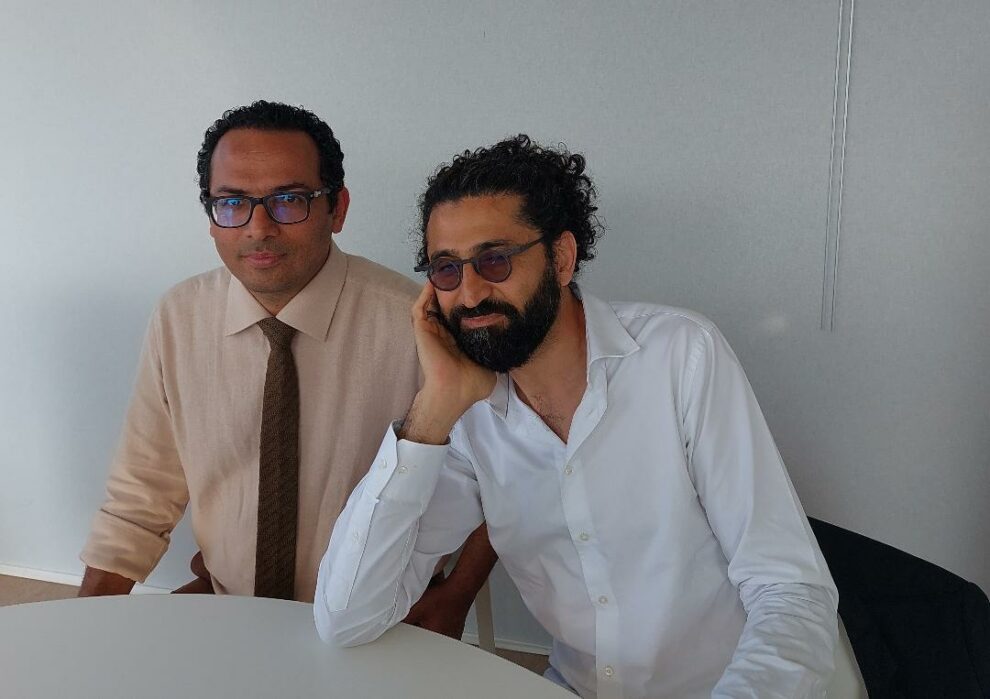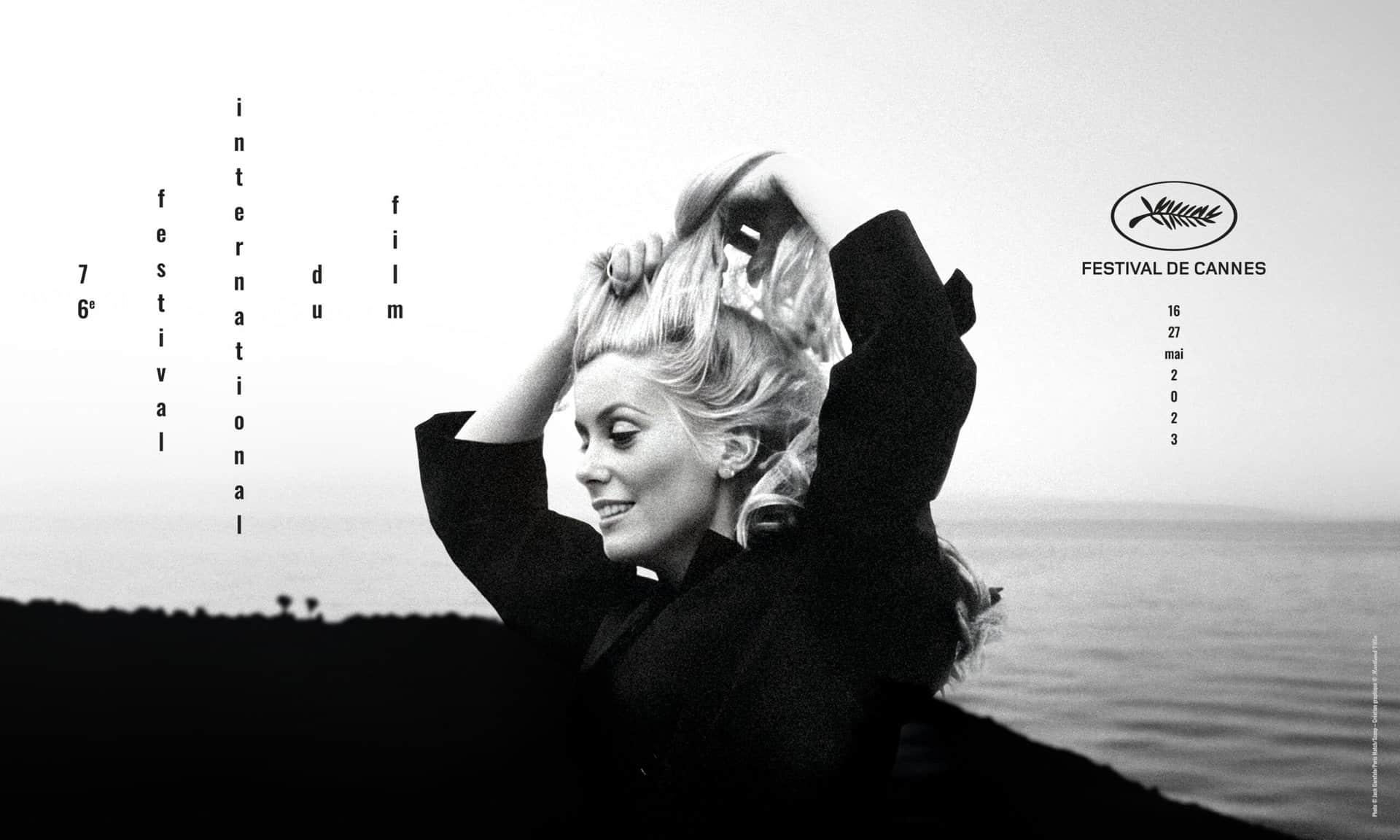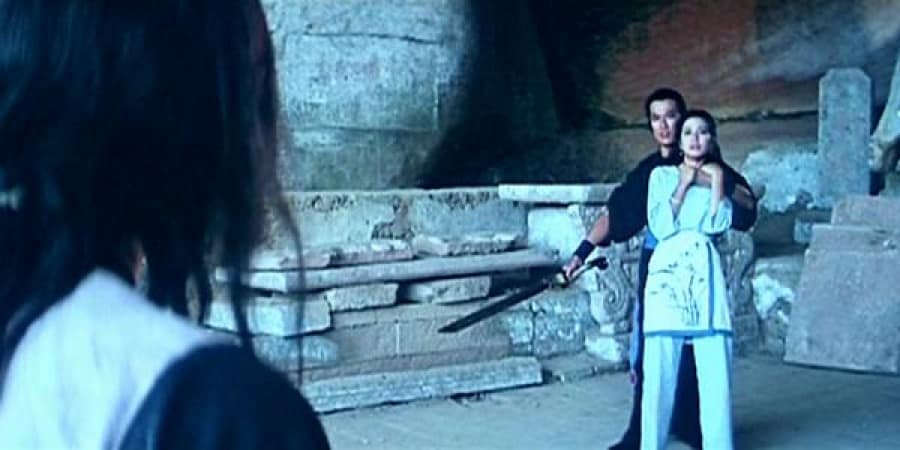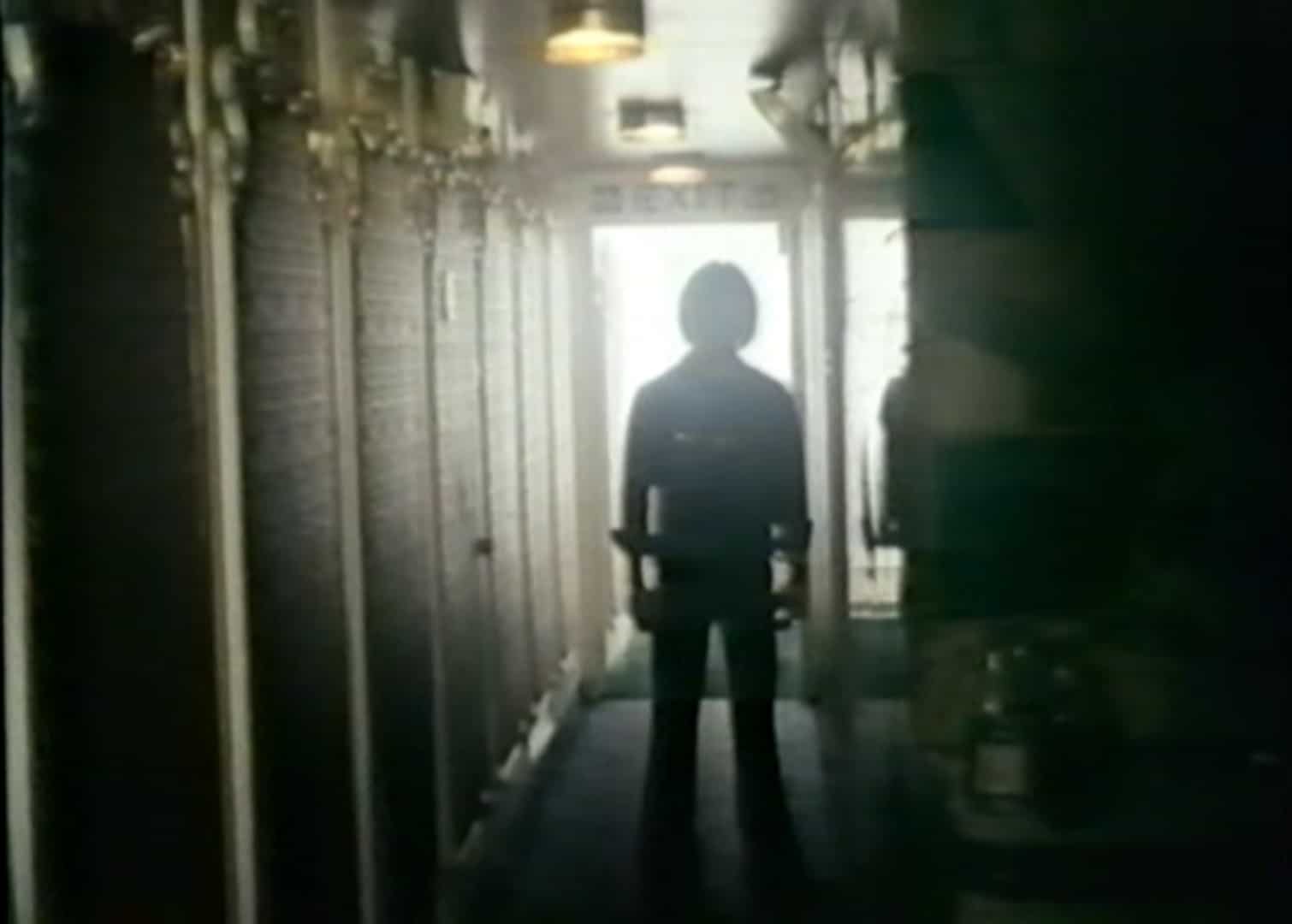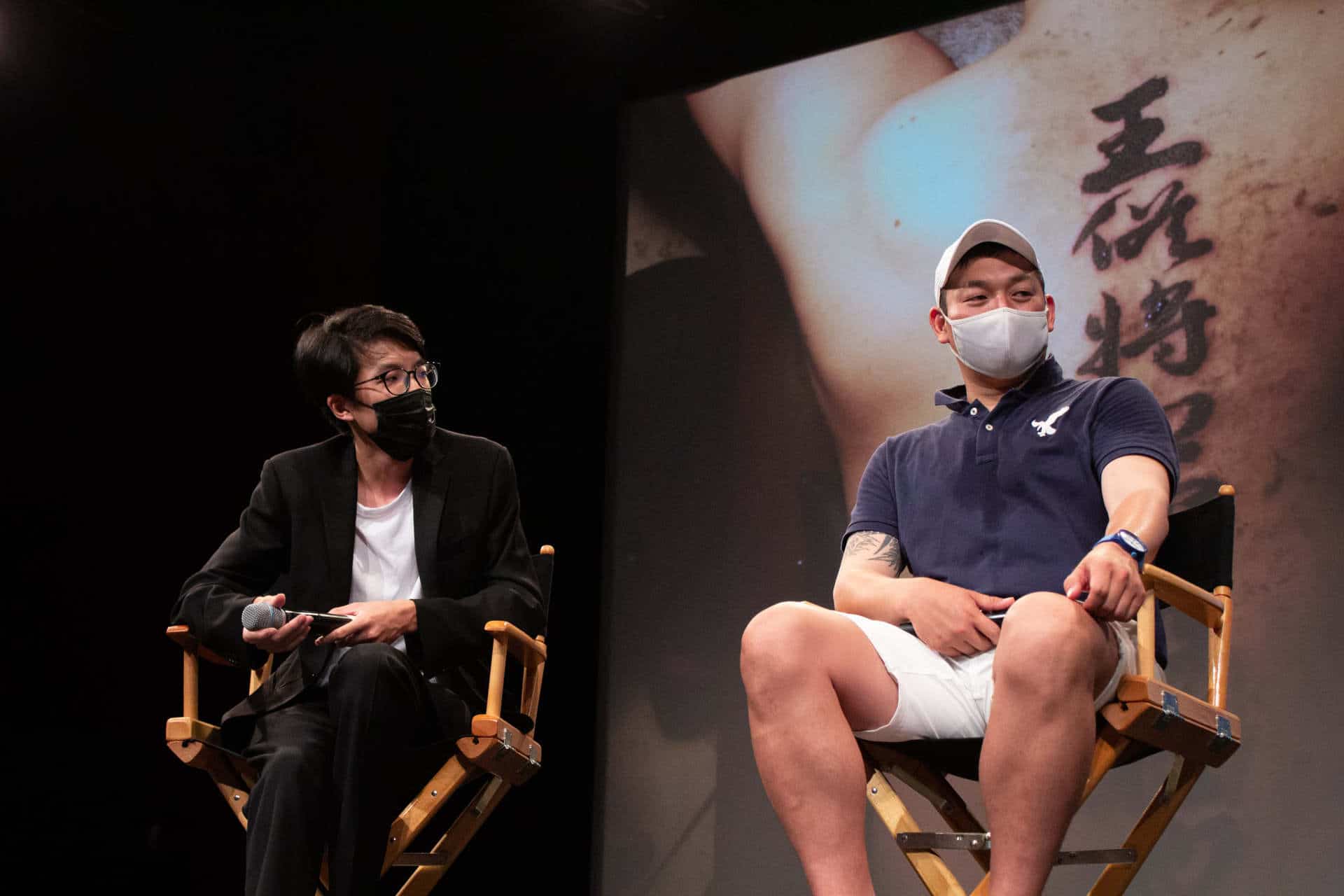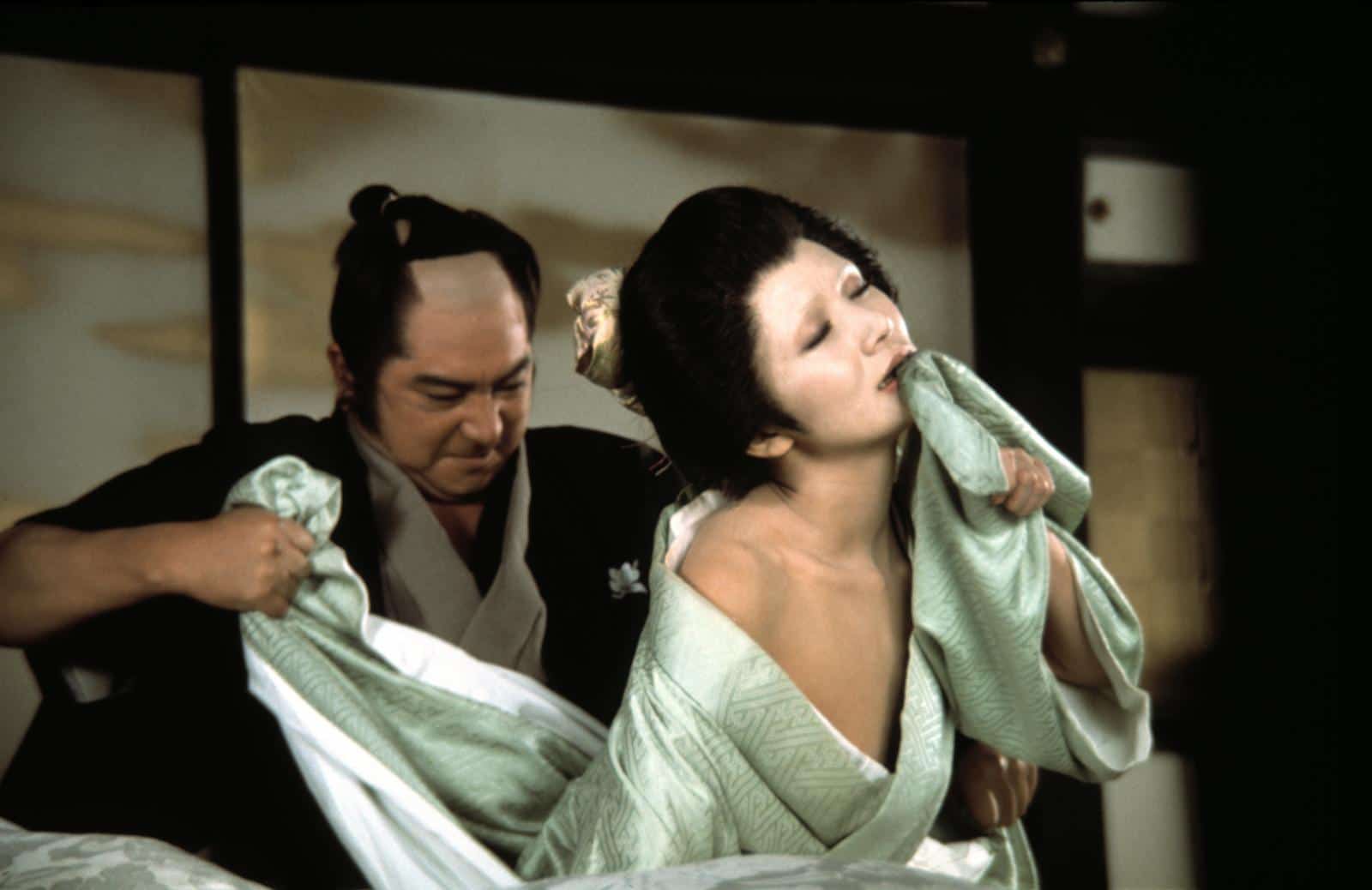Persian helmers Ali Asgari and Alireza Khatami have teamed again to make a movie about what they call “one step forward”. Built in the form of 12 short, completely separated stories that bare the names of their main protagonists, “Terrestrial Verses” shows different situations of oppression, some of them completely absurd and some uncomfortable, with most of them handled with a great dose of deadpan humor.
At the international premiere of their movie in the Uncertain Regard competition program of the festival, Alireza Kathami addressed the packed Debussy theatre with words about the current situation in Iran.
Asian Movie Pulse met the directors to ask them about their idea to make a film out of twelve tableaux, about the inspiration found in old Persian form of poetry, about the importance of humor to battle one's rights and taking that actual one step forward.
Terrestrial Verses is screening at Cannes
The first question regards your past. You couldn't stand each other, and now we had the pleasure of watching your second joint directorial project. What changed your opinion, when did you find a common language and what was the problem in the first place?
Ali Asghari: I can openly say why I didn't like him. We both had our films at the Venice Film Festival in 2017, and we previously knew each other only from Facebook, but we hadn't met in person. He asked me to get him a ticket for my screening, and then I saw him walking out of the cinema after 20 minutes. That is why I was angry with him.
Alireza Khatami: (laughs) I was the first to leave. I could have told him that I was sick, but that would be a lie. I think that leaving cinema was a very important moment, because I was so exhausted by social realism, and Ali is one of the leading figures of this movement. Of course, he was doing it in a different way than the others because his focus was very interesting regarding the development of characters and depicting human lives. I connected to this very intimate personal side of it, but I wasn't really connecting with the rest. I thought “what a waste of talent”. At the same time, he was asking me why I am not getting close to my characters. Seven years later we are here, with a film that I think it's both formal and intimate. We are pushing each other's boundaries to get a new form.
Ali Asgari: He was also the co-writer of my previous feature film “Until Tomorrow” which screened in the Panorama programmme of Berlinale.
Alireza Kathami: All jokes aside, I think that Ali is one of the most prolific filmmakers of my generation He had a short running in the Orizzonti Corti competition in Venice (“Disappearance”, 2017), two short in the main Cannes competition (“More Than Two Hours” from 2013 & “The Silence” in 2016, both co-directed/ co-written with Farnoosh Samadi), and so on. He has more than 400 awards under his belt, and I don't think that there are many filmmakers in the world who can claim that. Of course, I've been an admirerer of his works. The conversations with him flow very easy. Our intital argument slowly turned into a profound conversation, and suddently we realized that we were halfways writing into a script together. We are here now.
Check the review of Until Tomorrow
Did you start shooting the movie before of after the tragic death of Mahsa Amini?
Ali Asgari: We started before it happened, and when she was murdered, we stopped for some months to concentrate on the script again, and we we shot the rest at the beginning of March this year.
Alireza Kathami: When that happened, the very idea was already conceived. After the events in September, cinema seemed irrelevant for a while. But as we are filmmakers, making a film was precisely what we wanted to do. We went back to our project. Things changed a little bit, and actually – the shock gave us the clarity about why we were doing this, but also the courage. When we saw all the people on the streets, it felt like the most logical thing in the world. We suddenly had a crystal clear vision about the shape of the project.
Have you joined the movement?
Alireza Khatami: We made a film. You cannot be neutral. You are always somehow involved. So, what do you want me to say now? Do you want me to send Ali to jail? I will take over some questions because he is in a very delicate situation, as he is going back to Iran right after Cannes.
Since you are going back to Iran, what are your worst fears?
Ali Asgari: With my previous films, I had a similar situation, but that was different because this film is a bit more critical. With earlier works, it was mostly about classical storytelling, but this one is quite different. At the same time, it is quite humorous. I played with that. Nobody knows what will happen, but we made this film in a very special period of time.
Alireza Kathami: Maybe the biggest fear is of not being able to make movies. Filmmakers make films.
What is the role of the dark humor in your movie?
Alireza Khatami: It came from the Persian poetry technique that is called “Debate”, in which two characters exchange thoughts about very specific social, and sometimes even political issues, and in these poems, one says something and the other one reacts. We wanted to make that form alive in cinema. Why we chose this specific technique is because there is a lot of humor in those poems. We thought that this was a very important and effective means, because we could express a lot of things through humor.
Ali Asgari: And we also thought that humour is the most effective tool in addressing things in the time of opression.
Alireza Kathami: Once you call “The emperor is naked”, you can not unsee what you have seen. Once you laugh, there is no way back.
Reffering the verses, is one of such from “Debates” tattooed on the body of a man who is trying to get his drivers license?
Ali Asgari: That was a part of a more philosophical approach that we had. We talked a lot about it. Maybe Alireza can explain it better because he is a teacher.
Alireza Kathami: We were interested in the philosophical investigation of individuals who are subjected to diverse forms of loosened regulations by different sources of power, and those sources of power can be manifested by different institutions. For instance, sometimes it is the government, but often it's a clerical institution which you can see in the episode when one man is trying to get a job. In a Foucault-ian way, the definition of politics begins exactly there. Any politics is biopolitics, and we were very interested to see how this begins from the very moment of birth. Each person is straight out subjected to this often arbitrary laws and regulations, and this never stops all the way till the moment you die. It was super important to us to define who is the citizen. We are all human, but to become a citizen, the holes in the system need to be exposed. If you are just an obedient servant of the system, you are just a gear and not a citizen yet. This goes back to Hanah Arendt's banality of evil: “I am just doing my job”. These characters are not victims. They are negotiating their ways out of power. Sometimes they are persistent, sometimes they give up, sometimes even the person on the other side changes their attitude. Also the person on the other side of the camera is a human being. Are they just doing their jobs? In one case, a police officer from which we expect that the least, says: “Hey, take this dog, and do this one good deed.” So, for us, this movie is about becoming a citizen in Deleuzian sense. It's about hope, it's about life, it's about going forward.
Can you tell us something about the opening, the long shot of Teheran?
Alireza Khatami: First of all, it was essential to create the city. We had everything first shot. Then we thought about creating the atmosphere, and at the end, we are destroying everything, so let's see how that should be at the beginning of the film. We thought about characters going to the city and at the end, destroying everything. That is why we have this long shot of Teheran showing the city from dusk till dawn. We put all of those characters in the metropolis.
Ali Asgari: Every character gave birth to the second one. We would discuss how each one of them would react in situations they were put in. In this manner, yet another character was born, and so on. That was the dynamic, and everything was very organic.
The characters were getting older with each episode.
Alireza Kathami: Yes, it went all the way. We wanted to show every generation, but the development of the idea was very organic.
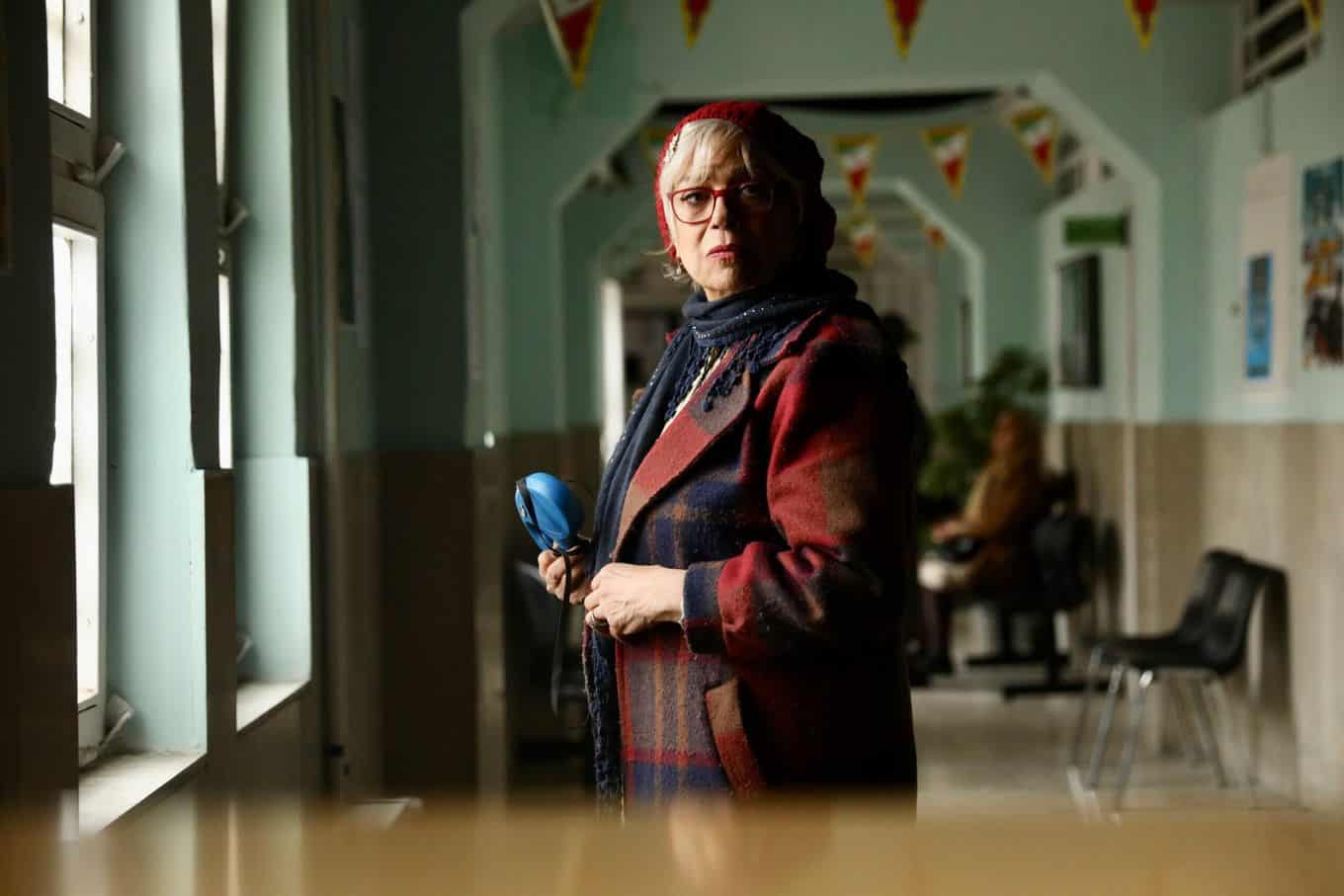
How did you cast the actors, and most importanty – how did you work with them concerning the fact that they had to portray full-bodied characters within 9 minutes?
Ali Asgari: It was very difficult.
Alireza Kathami: We needed such actors who could pull the nine minutes off without cut. They had to go through different levels of emotions. That was the reason why we had to change four actors because we were not happy with what they did.
Ali Asgari: It was actually six altogether, because it was crucial to have people with right reactions. We had to keep the harmony of the story flow. We chose professional actors for the roles both in front and behind the camera, because they were all equally important. It was always about the conversation between two people who had to control their feelings, and that's why we chose very important actors.
Alireza Kathani: I must explain what we mean when we say that we had to change actors. It always happened during the shooting, and that was extremely challenging. When they stood in fron of the camera and realized that they were expected to pull it of in one shot for nine minutes, some of them got scared. Some would forget their lines, etc.
Ali Asgari: Our actors did an incredible job, and we are very proud of them. They nailed it, and we felt as if we were conducting an orchestra since everything came to the team. The film was extremely scripted, and not a word could be altered because it would otherwise impact the narrative. Everything had to fit.
Most situations people in the movie are faced with, seem absurd.
Alireza Khatami: Pick any country, and any law you want, put a magnifier on it, and it will sound absurd. I will give you an example: I am wearing a blue shirt, and a blue coat and I am entering the gala, but no – I had to wear black. Why? Blue is much nicer. Black doesn't look good on me. I am a brown guy, but that's a rule. So I had to go and buy black attire and come back. Also, you can't wear comfortable shoes. They have to be black, leather things. So, it's not about the situation itself, it's about focusing.
Ali Asgari: We took are creative liberties and made everything more grotesque.
In one of the chapters, a young woman needs to prove that she wasn't behind the wheel of her car when a shot of a person without a headscarf was caught by the security camera. She takes off her scarf to show that she's got very short hair. With this you have broken two taboos: cropped hair and showing a woman without headscarf. They all presumably live in Iran. How much fear was present when the film was shot?
Ali Asgari: She took the risk. She is a courageous person and she decided to do that. Here as well she was without a headscarf, so what you can see is her bravery.
Alireza Khatami: It is as in an old classic story: everybody should step forward one step. We didn't ask our actors to take the risk, it was their choice.
None of your characters is a victim.
Alireza Khatami: When we started writing Ali's feature film “Until Tomorrow” which I find is beautiful, and very prophetic about what was coming, the first thing we discussed was that the movie had to be hopeful, and that no one should become a victim. We've kept that trend. They have their voice, they are clear about what they want, and they are fighting for it. We don't want to talk about fear, we want to celebrate courage. It is a movie about one step forward.


